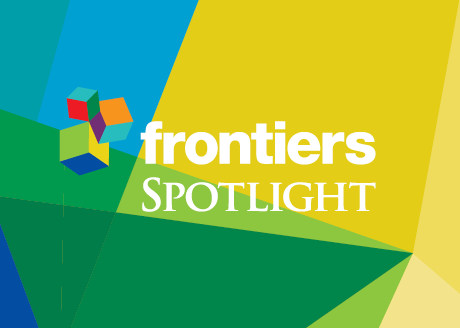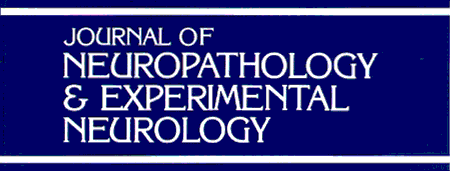 “This meta-analysis paper describes the analysis of observational clinical studies on the treatment of refractory epilepsy with cannabidiol (CBD)-based products. Beyond attempting to establish the safety and efficacy of such products, we also investigated if there is enough evidence to assume any difference in efficacy between CBD-rich extracts compared to purified CBD products.
The systematic search took place in February/2017 and updated in December/2017 using the keywords “epilepsy” or “Dravet” or “Lennox-Gastaut” or “CDKL5” combined with “Cannabis”, “cannabinoid”, “cannabidiol” or “CBD” resulting in 199 papers. The qualitative assessment resulted in 11 valid references, with an average impact factor of 8.1 (ranging from 1.4 to 47.8). The categorical data of a total of 670 patients were analyzed by Fischer test. The average daily dose ranged between 1 and 50 mg/kg, with treatment length from 3 to 12 months (mean 6.2 months).
Two thirds of patients reported improvement in the frequency of convulsive crisis (399/622, 64%). There were more reports of improvement from patients treated with CBD-rich extracts (318/447, 71%) than patients treated with purified CBD (81/223, 36%), with statistical significance (p<0.0001).
Nevertheless, when the standard clinical threshold of a “50% reduction or more in the frequency of convulsive crisis” was applied, only 39% of the individuals were considered “responders”, and there was no difference (p=0.56) between treatments with CBD-rich extracts (97/255, 38%) and purified CBD (94/223, 42%).
Patients treated with CBD-rich extracts reported lower average dose (6.1 mg/kg/day) than those using purified CBD (27.1 mg/kg/day). The reports of mild (109/285 vs 291/346, p<0.0001) and severe (23/285 vs 77/346, p<0.0001) adverse effects were more frequent in products containing purified CBD than in CBD-rich extracts.
CBD-rich extracts seem to present a better therapeutic profile than purified CBD, at least in this population of patients with refractory epilepsy. The roots of this difference is likely due to synergistic effects of CBD with other phytocompounds (aka Entourage effect), but this remains to be confirmed in controlled clinical studies.”
“This meta-analysis paper describes the analysis of observational clinical studies on the treatment of refractory epilepsy with cannabidiol (CBD)-based products. Beyond attempting to establish the safety and efficacy of such products, we also investigated if there is enough evidence to assume any difference in efficacy between CBD-rich extracts compared to purified CBD products.
The systematic search took place in February/2017 and updated in December/2017 using the keywords “epilepsy” or “Dravet” or “Lennox-Gastaut” or “CDKL5” combined with “Cannabis”, “cannabinoid”, “cannabidiol” or “CBD” resulting in 199 papers. The qualitative assessment resulted in 11 valid references, with an average impact factor of 8.1 (ranging from 1.4 to 47.8). The categorical data of a total of 670 patients were analyzed by Fischer test. The average daily dose ranged between 1 and 50 mg/kg, with treatment length from 3 to 12 months (mean 6.2 months).
Two thirds of patients reported improvement in the frequency of convulsive crisis (399/622, 64%). There were more reports of improvement from patients treated with CBD-rich extracts (318/447, 71%) than patients treated with purified CBD (81/223, 36%), with statistical significance (p<0.0001).
Nevertheless, when the standard clinical threshold of a “50% reduction or more in the frequency of convulsive crisis” was applied, only 39% of the individuals were considered “responders”, and there was no difference (p=0.56) between treatments with CBD-rich extracts (97/255, 38%) and purified CBD (94/223, 42%).
Patients treated with CBD-rich extracts reported lower average dose (6.1 mg/kg/day) than those using purified CBD (27.1 mg/kg/day). The reports of mild (109/285 vs 291/346, p<0.0001) and severe (23/285 vs 77/346, p<0.0001) adverse effects were more frequent in products containing purified CBD than in CBD-rich extracts.
CBD-rich extracts seem to present a better therapeutic profile than purified CBD, at least in this population of patients with refractory epilepsy. The roots of this difference is likely due to synergistic effects of CBD with other phytocompounds (aka Entourage effect), but this remains to be confirmed in controlled clinical studies.”
 “Both Δ9 Tetrahydrocannabidiol (THC) and cannabidiol (CBD) components of cannabis, have been shown to have anticonvulsant effects.
Cannabis oils are used to treat seizures in drug-resistant epilepsy (DRE). Recent trials provide data on dosing, side effects, and efficacy of CBD, yet there is a paucity of information on THC in epilepsy.
Primary objective was to establish dosing and tolerability of TIL-TC150 – a cannabis plant extract produced by Tilray®, containing 100 mg/mL CBD and 2 mg/mL THC- in children with Dravet syndrome. Secondary objectives were to assess impact of therapy on seizures, electroencephalogram (EEG) and quality of life.
“Both Δ9 Tetrahydrocannabidiol (THC) and cannabidiol (CBD) components of cannabis, have been shown to have anticonvulsant effects.
Cannabis oils are used to treat seizures in drug-resistant epilepsy (DRE). Recent trials provide data on dosing, side effects, and efficacy of CBD, yet there is a paucity of information on THC in epilepsy.
Primary objective was to establish dosing and tolerability of TIL-TC150 – a cannabis plant extract produced by Tilray®, containing 100 mg/mL CBD and 2 mg/mL THC- in children with Dravet syndrome. Secondary objectives were to assess impact of therapy on seizures, electroencephalogram (EEG) and quality of life.

 “Cannabis sativa contains many related compounds known as phytocannabinoids. The main psychoactive and non-psychoactive compounds are Δ9-tetrahydrocannabidiol (THC) and
“Cannabis sativa contains many related compounds known as phytocannabinoids. The main psychoactive and non-psychoactive compounds are Δ9-tetrahydrocannabidiol (THC) and 
 “Anticonvulsant effects of cannabidiol (CBD), a nonpsychoactive
“Anticonvulsant effects of cannabidiol (CBD), a nonpsychoactive  “This meta-analysis paper describes the analysis of observational clinical studies on the treatment of refractory epilepsy with cannabidiol (CBD)-based products. Beyond attempting to establish the safety and efficacy of such products, we also investigated if there is enough evidence to assume any difference in efficacy between CBD-rich extracts compared to purified CBD products.
The systematic search took place in February/2017 and updated in December/2017 using the keywords “epilepsy” or “Dravet” or “Lennox-Gastaut” or “CDKL5” combined with “Cannabis”, “cannabinoid”, “cannabidiol” or “CBD” resulting in 199 papers. The qualitative assessment resulted in 11 valid references, with an average impact factor of 8.1 (ranging from 1.4 to 47.8). The categorical data of a total of 670 patients were analyzed by Fischer test. The average daily dose ranged between 1 and 50 mg/kg, with treatment length from 3 to 12 months (mean 6.2 months).
Two thirds of patients reported improvement in the frequency of convulsive crisis (399/622, 64%). There were more reports of improvement from patients treated with CBD-rich extracts (318/447, 71%) than patients treated with purified CBD (81/223, 36%), with statistical significance (p<0.0001).
Nevertheless, when the standard clinical threshold of a “50% reduction or more in the frequency of convulsive crisis” was applied, only 39% of the individuals were considered “responders”, and there was no difference (p=0.56) between treatments with CBD-rich extracts (97/255, 38%) and purified CBD (94/223, 42%).
Patients treated with CBD-rich extracts reported lower average dose (6.1 mg/kg/day) than those using purified CBD (27.1 mg/kg/day). The reports of mild (109/285 vs 291/346, p<0.0001) and severe (23/285 vs 77/346, p<0.0001) adverse effects were more frequent in products containing purified CBD than in CBD-rich extracts.
CBD-rich extracts seem to present a better therapeutic profile than purified CBD, at least in this population of patients with refractory epilepsy. The roots of this difference is likely due to synergistic effects of CBD with other phytocompounds (aka Entourage effect), but this remains to be confirmed in controlled clinical studies.”
“This meta-analysis paper describes the analysis of observational clinical studies on the treatment of refractory epilepsy with cannabidiol (CBD)-based products. Beyond attempting to establish the safety and efficacy of such products, we also investigated if there is enough evidence to assume any difference in efficacy between CBD-rich extracts compared to purified CBD products.
The systematic search took place in February/2017 and updated in December/2017 using the keywords “epilepsy” or “Dravet” or “Lennox-Gastaut” or “CDKL5” combined with “Cannabis”, “cannabinoid”, “cannabidiol” or “CBD” resulting in 199 papers. The qualitative assessment resulted in 11 valid references, with an average impact factor of 8.1 (ranging from 1.4 to 47.8). The categorical data of a total of 670 patients were analyzed by Fischer test. The average daily dose ranged between 1 and 50 mg/kg, with treatment length from 3 to 12 months (mean 6.2 months).
Two thirds of patients reported improvement in the frequency of convulsive crisis (399/622, 64%). There were more reports of improvement from patients treated with CBD-rich extracts (318/447, 71%) than patients treated with purified CBD (81/223, 36%), with statistical significance (p<0.0001).
Nevertheless, when the standard clinical threshold of a “50% reduction or more in the frequency of convulsive crisis” was applied, only 39% of the individuals were considered “responders”, and there was no difference (p=0.56) between treatments with CBD-rich extracts (97/255, 38%) and purified CBD (94/223, 42%).
Patients treated with CBD-rich extracts reported lower average dose (6.1 mg/kg/day) than those using purified CBD (27.1 mg/kg/day). The reports of mild (109/285 vs 291/346, p<0.0001) and severe (23/285 vs 77/346, p<0.0001) adverse effects were more frequent in products containing purified CBD than in CBD-rich extracts.
CBD-rich extracts seem to present a better therapeutic profile than purified CBD, at least in this population of patients with refractory epilepsy. The roots of this difference is likely due to synergistic effects of CBD with other phytocompounds (aka Entourage effect), but this remains to be confirmed in controlled clinical studies.”
 “Epilepsy is a common neurologic disorder; it is estimated that ∼50 million people are affected worldwide. About one third of those patients are drug resistant, defined as failure to stop all seizures despite adequate trials of at least 2 appropriate medications. There has been an enormous interest in developing antiepileptic drugs with novel mechanisms of action. This review discusses the evidence supporting the anticonvulsant properties of cannabis in humans, focusing on
“Epilepsy is a common neurologic disorder; it is estimated that ∼50 million people are affected worldwide. About one third of those patients are drug resistant, defined as failure to stop all seizures despite adequate trials of at least 2 appropriate medications. There has been an enormous interest in developing antiepileptic drugs with novel mechanisms of action. This review discusses the evidence supporting the anticonvulsant properties of cannabis in humans, focusing on  “Dravet Syndrome is a devastating childhood epilepsy disorder with high incidence of premature death plus comorbidities of ataxia, circadian rhythm disorder, impaired sleep quality, autistic-like social-interaction deficits and severe cognitive impairment. It is primarily caused by heterozygous loss-of-function mutations in the SCN1A gene that encodes brain voltage-gated sodium channel type-1, termed NaV1.1. Here I review experiments on mouse genetic models that implicate specific loss of sodium currents and action potential firing in GABAergic inhibitory interneurons as the fundamental cause of Dravet Syndrome. The resulting imbalance of excitatory to inhibitory neurotransmission in neural circuits causes both epilepsy and co-morbidities. Promising therapeutic approaches involving atypical sodium channel blockers, novel drug combinations, and
“Dravet Syndrome is a devastating childhood epilepsy disorder with high incidence of premature death plus comorbidities of ataxia, circadian rhythm disorder, impaired sleep quality, autistic-like social-interaction deficits and severe cognitive impairment. It is primarily caused by heterozygous loss-of-function mutations in the SCN1A gene that encodes brain voltage-gated sodium channel type-1, termed NaV1.1. Here I review experiments on mouse genetic models that implicate specific loss of sodium currents and action potential firing in GABAergic inhibitory interneurons as the fundamental cause of Dravet Syndrome. The resulting imbalance of excitatory to inhibitory neurotransmission in neural circuits causes both epilepsy and co-morbidities. Promising therapeutic approaches involving atypical sodium channel blockers, novel drug combinations, and  “The objective of this study was to characterize the changes in adverse events, seizure severity, and frequency in response to a pharmaceutical formulation of highly purified
“The objective of this study was to characterize the changes in adverse events, seizure severity, and frequency in response to a pharmaceutical formulation of highly purified